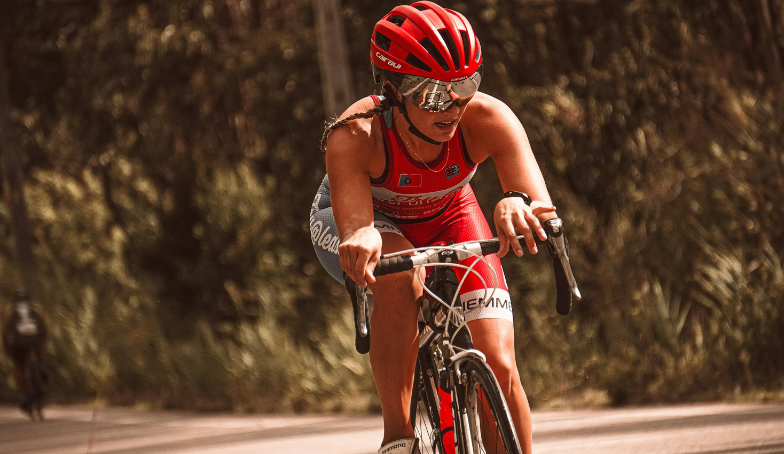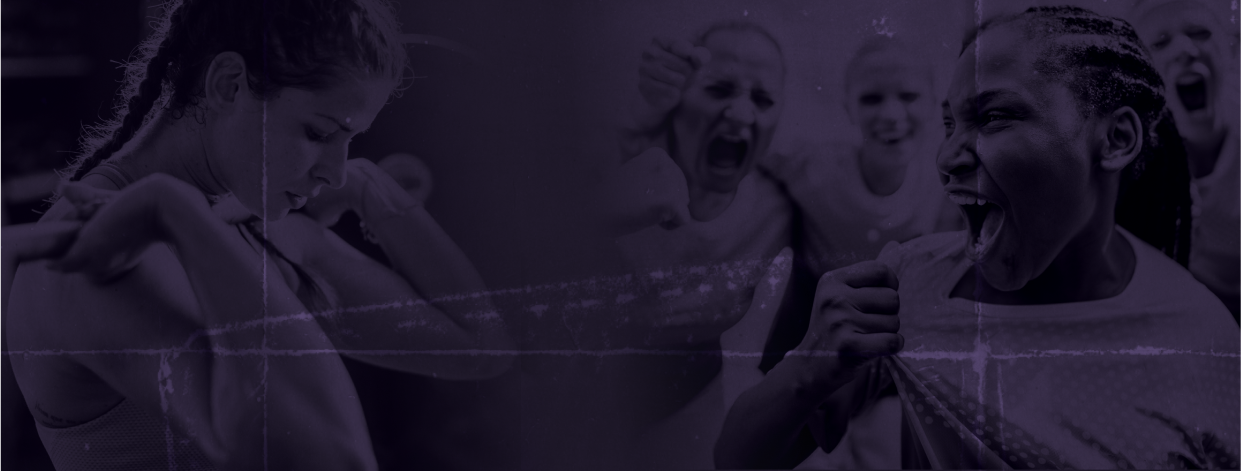Amateur cyclist Hannah Rossi* was ecstatic when she signed up for her first women’s race in September. That is, until the race, which was designed and advertised for women only, was dominated by an “aggressive” trans-identifying male cyclist who made female competitors like herself feel uncomfortable and uneasy.
Rossi spoke with IW Features about this experience with the hopes of protecting female athletics internationally.
After moving to Italy in 2015, Rossi wanted to continue cycling as she had done with passion since high school. Naturally, she wanted to compete against other female cyclists. However, the vast majority of women-only races in Italy are exclusively for professional cyclists, she said.
There is far less competitive opportunity for amateur cyclists such as herself, which means the lesser-experienced athletes, male and female alike, end up lumped together on a course. As a result, Rossi has had to share the course with senior male cyclists.
That’s not the kind of competition Rossi was hoping for, and it’s not the athletic culture she was used to. In the United States, where she grew up and attended college, Rossi said cycling always had separate, sex-based divisions, regardless of experience.
“In the U.S., when I was on my college club team, we raced every weekend against other schools, and we always had amateur women’s-only races,” she said. “It still baffles me – how is it this way when there are so many more cyclists in Italy?”
Rossi became “really passionate” about the sport while in college in Virginia, where she joined the school’s cycling club. When she had the opportunity to study abroad in Italy during college, Rossi brought her bike with her. There, cycling turned into a full-time hobby. While studying abroad in Italy, she also met her now-husband.
Now, living in the northern part of the country, Rossi hopes to help the sport grow in her region. However, the availability of female-only races for amateurs isn’t guaranteed.
Starting in early 2023, Rossi reached out to various race committees in the hopes of finding a women-only competition below the professional level, but given Italy’s cycling competition structure, she was out of luck. So, Rossi and her friends got stuck in a mixed-sex circuit race in which they ended up racing against men in their mid to late 50s.
But this year, Rossi and her cycling club teammates finally found a women-only race.
“We were super excited,” Rossi said. “This is the moment we’ve all really been waiting for, just us, and not with thousands of guys around.”
Rossi said her team had high hopes for the race. More than anything, they hoped the event would be a catalyst for increased opportunities for amateur female cyclists.
However, any excitement Rossi had was quickly shut down when a male cyclist who identified as a transgender woman showed up to compete.
According to Rossi, this male cyclist had a muscular, strong build, which made the female competitors feel uneasy and unsafe. When the race began, Rossi said the male’s riding style made her and her teammates nervous.
“This rider did have an aggressive riding style, more like a man would,” Rossi said.
According to Rossi, women ride in a different, more “delicate” way, in part to ensure no one gets hurt. She added that women make a conscious effort to avoid touching elbows when passing other riders so that everyone can perform their best.
In contrast, Rossi said the male athlete got “really close, touching elbows” with the female cyclists. At one point, the male cyclist allegedly tried to cut Rossi’s teammate off at the wheel.
It did not shock anyone competing when this male athlete went on to win the entire race, Rossi said. After racing for a half hour, with each lap lasting around 1.3km, the female competitors were outmatched.
“I felt defeated and disheartened, not from a competition standpoint, but that at our first opportunity at a women’s only amateur race, the winner wasn’t even a woman,” Rossi said.
Rossi said she and her teammates were unsure how the trans-identified male cyclist qualified to enter a women-only race in the first place, or whether he was required to take a testosterone test or provide another document offering proof of “gender-affirming” procedures.
After all, the amateur race was regulated by the Union Cycliste Internationale (UCI), the worldwide governing body for cycling, which changed its transgender policy in 2023 to prohibit transgender-identifying athletes who transitioned after male puberty from participating in women’s races.
Unfortunately, it doesn’t appear that all cycling organizations are following this policy –– and Rossi and her teammates got the short end of the bargain.
“I can only sympathize for myself, [my] teammates, and the other women present at the race we had all been waiting for, only to see it be won by a man that was allowed to race with us,” she said.
The UCI did not respond to a request for comment in time for publication.
Rossi chose to speak out about her experience cycling against a transgender-identifying athlete in order to positively impact the future for all female athletes.
However, Rossi said she worried about going public with her identity. Rossi admitted she was even “afraid” to bring the issue up with her teammates. But when she finally did, Rossi realized “they felt the same way and supported me in sharing [our] story.”
Their support made Rossi realize that silence was not an option.
“I don’t think it was right for me to just let what happened happen and not share how it made me and my teammates feel,” Rossi said.
Indeed, change has to start somewhere, and Rossi wants to be a part of making it happen — for herself, her fellow female cyclists, and all other women facing the encroachment of their rights.
*To protect the identity of the storyteller, a pseudonym has been used throughout.










